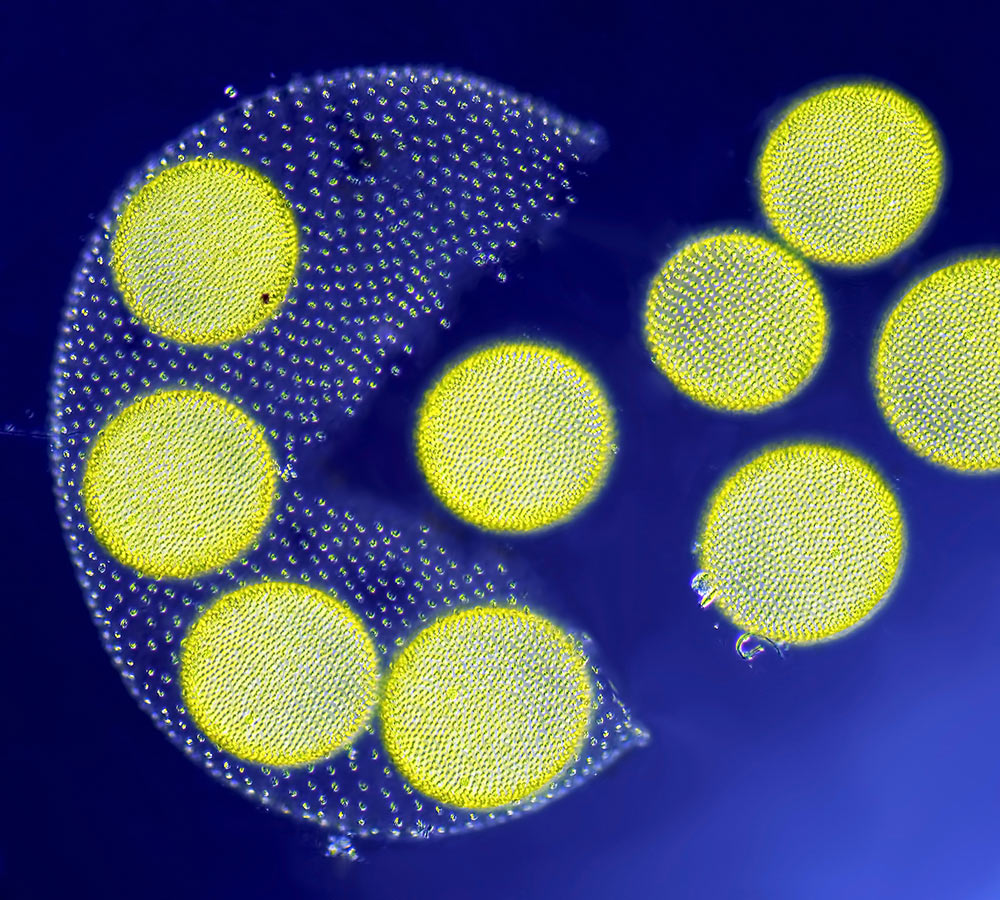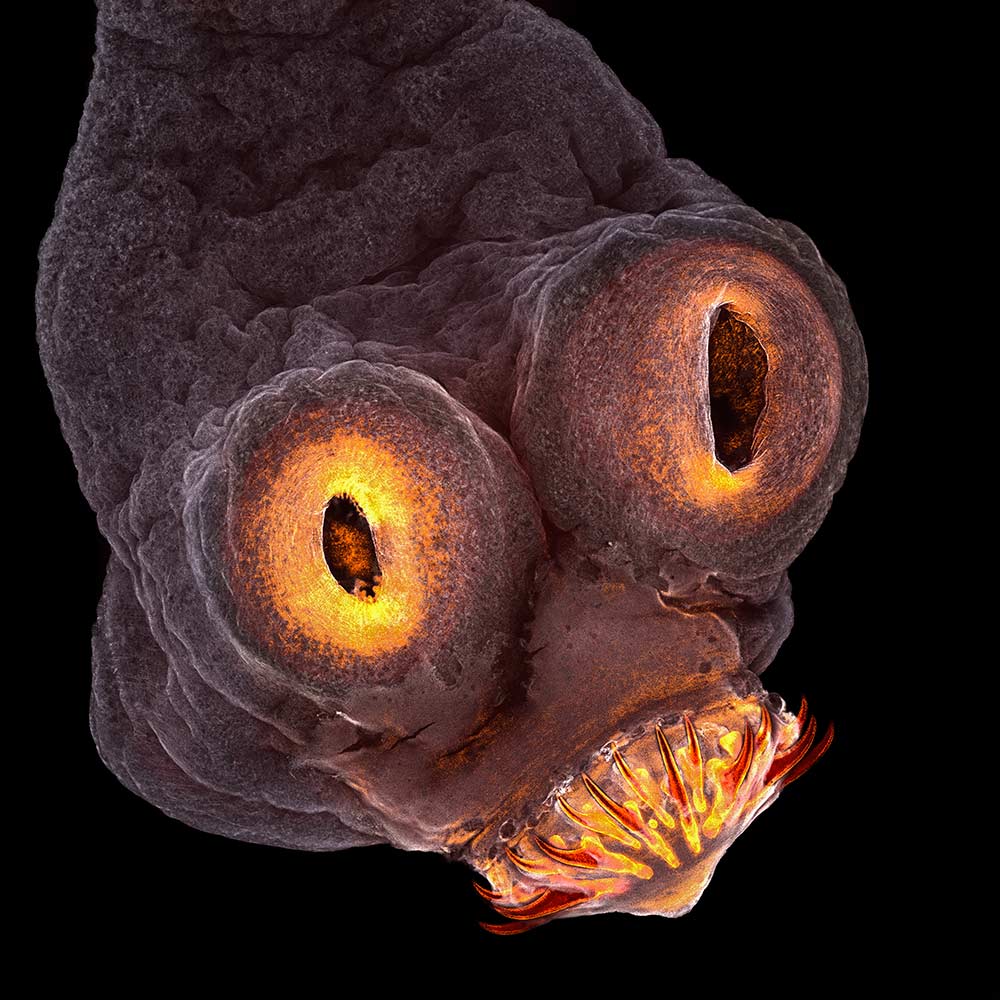 | « Back to article | Print this article |
At first glance, few would be able to identify what’s in the images below. But that’s the beauty of microphotography.
The winning photos this year in Nikon’s annual Small World Photomicrography Competition offer an up-close look at our world's microscopic realm -- things that can't be seen with the naked eye.
Here are some of the winning images.
(Please click on the photos for hi-resolution images)
>> First place
Dr Bram van den Broek, Andriy Volkov, Dr Kees Jalink, Dr Nicole Schwarz & Dr Reinhard Windoffer, Amsterdam, The Netherlands

That's an immortalised human skin cells (HaCaT keratinocytes) expressing fluorescently tagged keratin.
>> Second place
Dr Havi Sarfaty, Yehud-Monosson, Israel

Seed head of Senecio vulgaris, a flowering plant. The photo has been taken using the technique of stereomicroscopy
>> Third place
Jean-Marc Babalian Nantes, France

Living Volvox algae releasing its daughter colonies. Volvox is a polyphyletic genus chlorophyte green algae. It forms spherical colonies of up to 50,000 cells.
>> Fourth place
Teresa Zgoda, Rochester, New York, US

Everted scolex (head) of Taenia solium, a tapeworm.
>> Sixth place
David A Johnston, Southampton, UK

Lily pollen.
>> Seventh place
Dr Ryo Egawa, Nagoya, Japan

Individually labeled axons -- the long thread-like part of a nerve cell -- in an embryonic chick ciliary ganglion, a nerve cell cluster located just behind the eye.
>> Eighth place
Dr Michael Perny, Bern, Switzerland

View of the cochlea -- a portion of the inner ear that looks like a snail shell -- of a newborn rat, with sensory hair cells (green) and spiral ganglion neurons (red).
>> 12th place
Charles B Krebs, Washington, US

Eye of an Opiliones, also known as daddy longlegs, a type of arachnids.
>> 15th place
Dr Rick Adams, Greeley, Colorado, US

Third trimester foetus of Megachiroptera, or fruit bat.
